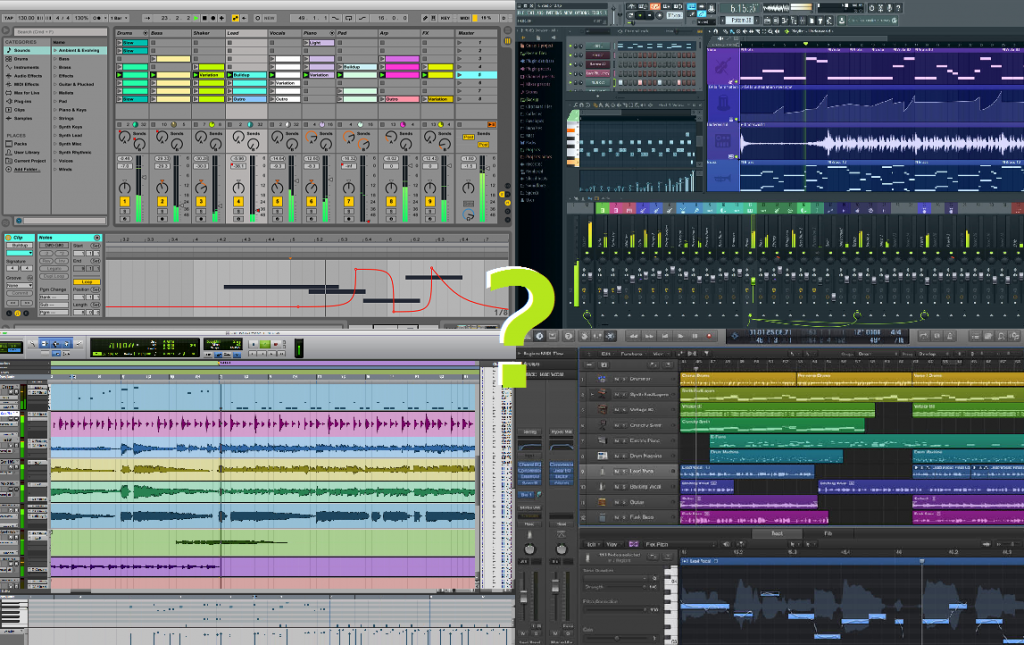
Music Production Software, known as Digital Audio Workstations (or DAWs for short), come in many shapes and sizes, and at a variety of different prices. When starting out a Music Producer, selecting a DAW can be quite a daunting and intimidating experience. After all, this is potentially your future livelihood we're talking about here! Selecting one as your creative outlet is a big decision. Therefore, one of the most frequently asked questions within the music tech industry is : "What is the best DAW on the market?".
The question has led to many a debate, and sometimes even arguments (seriously, just check out a few of the forums, some people are crazy!). Music Producers can become very attached to their DAW and will blindly swear by it and defend its honour at any given opportunity, without taking a subjective view of the DAW landscape (please don't be that person). For example, some will swear by Ableton Live with its excellent live performance capabilities, where others will turn their nose up at anything that isn't Logic Pro X with its incredible "in-the-box" value. While the question of "What is the best?" does pose some merit, perhaps it should be approached from a slightly different perspective. Instead of asking "What is the best?", maybe we should be asking "What is the best for me?".
In spite of there being a large number of DAWs available on the market, when you strip back all of the nuts and bolts (or lines of code and shiny GUI in this instance), in essence, they all do the exact same thing. They enable you to create music. However, that's not to say that they are all identical. Each DAW has its own host of unique quirks and idiosyncrasies, and quite simply there are too many DAWs with too many features to go into an in-depth analysis of each one within this article. Therefore, below we will take a brief look at four of the most popular DAWs available on the market today. Just because they have been selected for the purposes of this article certainly does not mean that they are the four best DAWs available. They have been chosen for the simple reason that they are the DAWs that we at Sound Training receive the most requests for tips about!
Logic Pro X
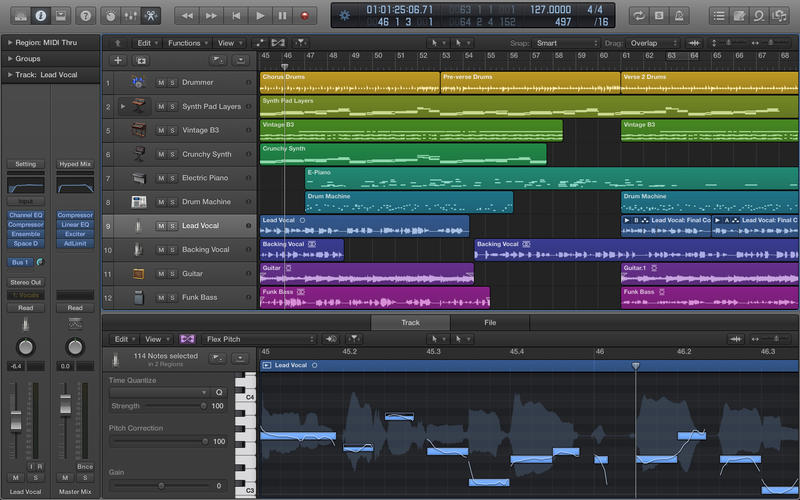
Logic Pro X is the latest version of the hugely popular DAW which is now developed by Apple. It's the big brother of Garage Band, which is available as a free download in order to whet your appetite for production. Offering incredible value at €199 ($199), Logic Pro X comes jam-packed with a huge amount of instruments, effects, plug-ins and audio sample content, all within the box. This means you can get up and running, and creating music without the need to shell out any additional hard-earned cash on third party plug-ins. Given the value for money alone it's easy to understand why this is such a popular choice, however there is much more to it than just great value. The DAW itself features an easy to use and understandable interface, and once mastered can result in a very efficient workflow. Also, it is a great all-round DAW, as it's suited to creating entirely electronic music compositions, solely recording bands / artists in the studio, or anything in between.
The major downside of Logic Pro is that it is only available on Mac OS, so if you're producing on a PC then you will have to look elsewhere. Additionally, it doesn't support VST plug-ins, instead opting for the AU (Audio Unit) format. That being said, it's great all-round performance and intuitive workflow won't leave you wanting for more.
Pros
- Excellent Value
- Everything you need "in the box"
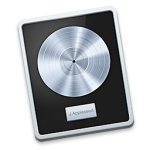
- Huge Sound Library
- Intuitive Workflow
Cons
- Mac only
- No VST support (AU only)
Recommendation - Great all-round DAW that offers incredible value. If you're using a Mac, then give it some serious consideration. Check out Garage Band as a free introduction.
Ableton Live
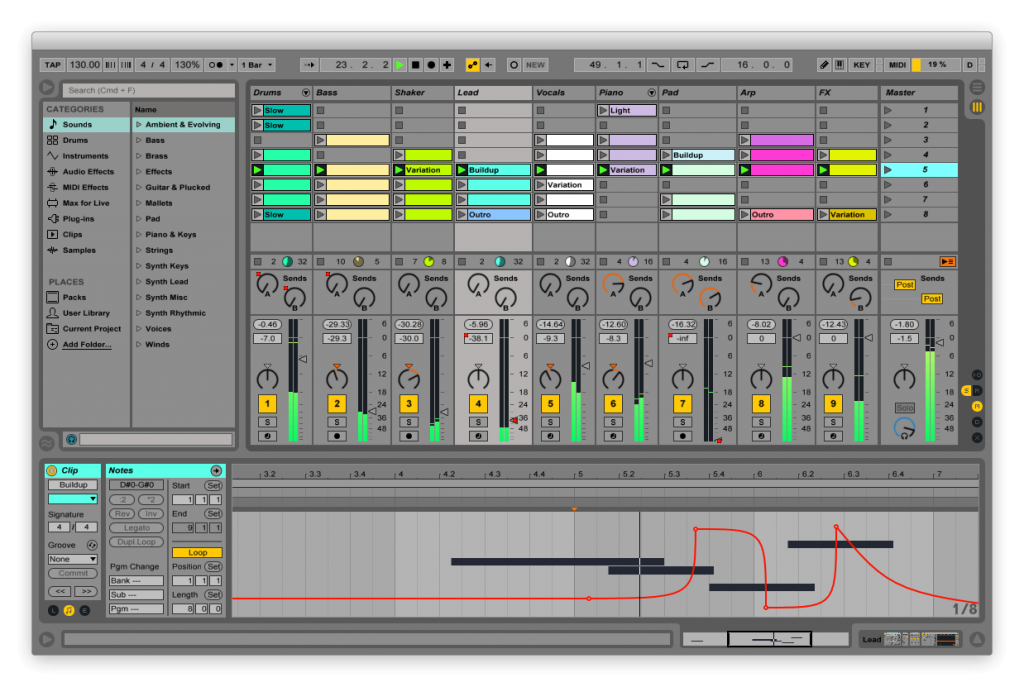
Before Ableton Live became a fully-fledged DAW, it was an instrument that was designed specifically for live performance. This aspect has always remained at the heart of Ableton; it is the definitive go-to software for producers who want to perform their music in a live context. Its unique clip-based workflow lends itself very well towards the Music Producer, as it allows for the quick experimentation of ideas, as well as a seamless transition between composing, performing and remixing. It also offers harmonious integration between the software itself and a range of hardware controllers. Third party manufacturers have created these controllers specifically dedicated to Ableton, which can often be used for both composition and live performance. Ableton also features an extremely powerful audio manipulation system that enables warping and real-time time-stretching of audio files, which allows for unique experimentation and creative applications. Another benefit of Ableton is that it has a strong community of users who offer support, advice and general discussion regarding all things industry-related.
There is no doubt that Ableton's strengths lie as an electronic music production and live performance tool. While it does offer recording capabilities, it is not as user friendly as some other DAWs when it comes to recording bands or artists in a recording studio-style setting. An additional downside is the cost, where the Standard version of Ableton Live 9 costs €349 ($449), with the Suite costing €599 ($749). A very limited Intro version is available for €79 ($99), however a reduced Track and Scene count make this a hard option to recommend. Even the Standard version of Ableton only comes with 3 relatively limited instruments, so unless you already have a host of third party plug-ins, the more expensive Suite option would be essential if you are serious about your music production.
Pros
- Innovative Workflow
- Excels at Live Performance
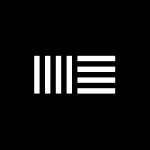
- Great for Electronic Music Production
- Excellent Audio Manipulation Capabilities
- Seamless Hardware Integration
- Strong User Community
Cons
- Expensive
- Not a lot in the box (Live 9 Suite recommended)
- Limited Large Scale Recording Capabilities
Recommendation - If you want to work as a producer with live performance integration, then Ableton is well worth investigating. Can be tricky initially, but is a rewarding DAW when mastered. Check out the 30 day free trial available through their website.
Avid Pro Tools
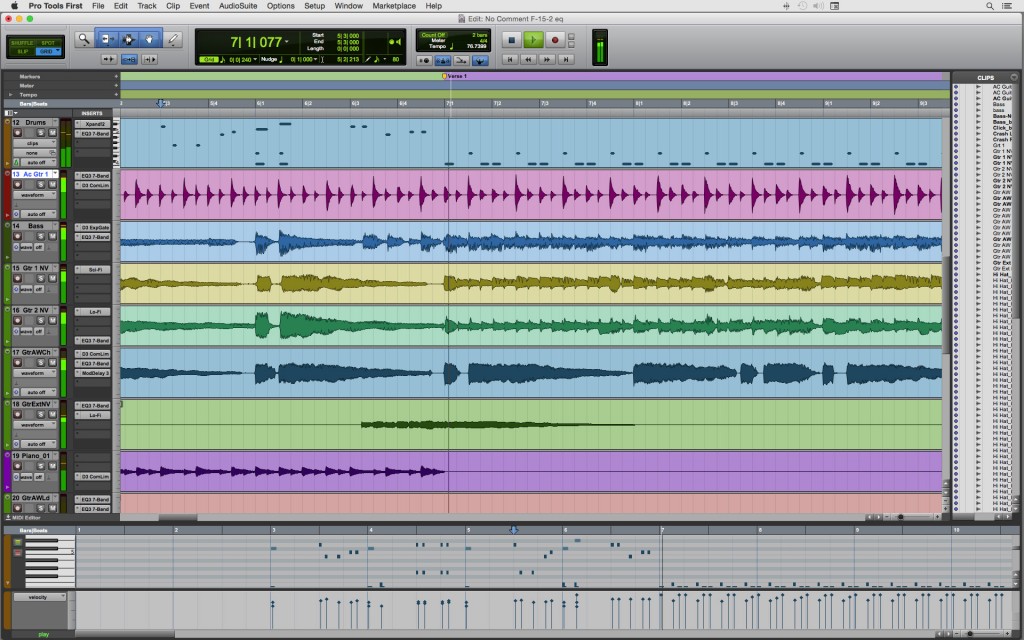
Largely recognised as being the industry standard software, Pro Tools has been a major player in the DAW market for a long time. However, that does not necessarily make it the best. Pro Tools is a superstar when it comes to all things audio. It features some extremely high-level audio editing capabilities, all backed up by a powerful audio engine and efficient computer performance when set up professionally.
While Pro Tools excels at audio-based tasks, it leaves a lot to be desired when dealing with MIDI and virtual instruments. While composition is possible in Pro Tools, it is simply not as user friendly in comparison to some of its rival DAWs. Similar to Logic Pro X, Pro Tools also does not support VST Instruments, favouring instead its own AAX format plug-ins. Pro Tools is also expensive, coming in at $300 per year if you choose subscribe and pay in monthly instalments, or $600 to purchase it outright (which then requires additional annual payments for upgrades). There is a free version available, Pro Tools First, which acts as an entry level version of the DAW, but it is very limited in its capabilities.
There is a stigma surrounding Pro Tools that it is very difficult to learn, but this simply isn't true. While it is a very powerful DAW with a lot of different aspects to it, its overall setup and workflow is similar to that of other DAWs such as Logic Pro X. A more accurate statement would be that Pro Tools can be difficult to master, as there is a lot to learn, however the same can be said for most DAWs.
Pros
- Industry Standard for Professional Studios
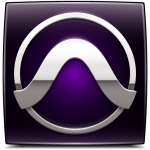
- Excellent for Audio-based Projects and Audio Editing
- Powerful Audio Engine and Performance
Cons
- Expensive
- MIDI capabilities leave a lot to be desired
- No VST Support
Recommendation - If your productions will consist of lots of recorded audio, or if your focus is on either working within a professional recording studio environment or delving into post-production, then Pro Tools should definitely be on your radar. If your primary focus is electronic music production then other DAWs are worth exploring.
FL Studio
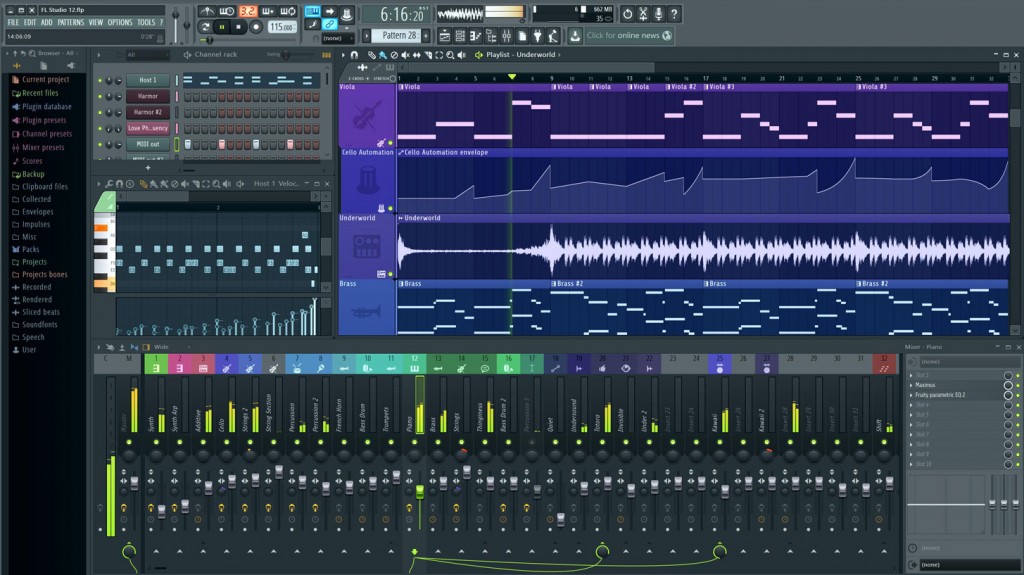
FL Studio can be an often overlooked and underestimated piece of production software. It comes jam-packed with instruments, plug-ins and a huge sound library, which offers incredible value. In addition to this, it features lifetime updates for its customers. So essentially, once you buy it you never have to worry about paying to upgrade to any future versions. The newly redesigned interface that was introduced in version 12 is vector-based, meaning that it is fully scalable so you can work on any screen size or resolution. The interface has also been stripped back, resulting in less clutter and a cleaner workspace. Similar to Ableton Live, FL Studio also offers a great community of dedicated users who offer support and discussions in all things FL Studio-related. This type of support can be invaluable when first starting out in music production.
Some downsides are that (at the time of writing) it is Windows-only, however there is a Mac version currently in development. The basic Fruity Edition (€89, $99) of the software can't record audio either, so if you're planning on working with audio in some fashion then you'll need to upgrade to a more expensive package. The Producer Edition at €189 ($199) offers great value to get you up and running with everything you need. There is also a Signature Edition (€289, $299) which offers even more in terms of instruments, effects and functionality.
Unfortunately, FL Studio can fall foul to some forms of music snobbery within the music industry, but in reality it is a very powerful DAW that offers excellent value for money. If you are running on a Windows PC and are on a budget then FL Studio is well worth your consideration.
Pros
- Great Value
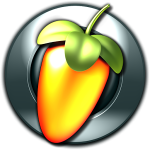
- Lifetime Updates
- Great for Electronic Music Production
- Huge Sound Library
- Strong User Community
Cons
- PC only (at time of writing)
- Fruity Edition is very limited
Recommendation - Great if on a budget and running on a Windows PC. Great for electronic music production. Stay away from the Fruity Edition, worth upgrading to Producer Edition. Check out the free trial available through their website.
Just some of the other DAWs not featured above include Steinberg Cubase, Propellerhead Reason, Cockos REAPER, Cakewalk Sonar, Presonus Studio One 3, Bitwig Studio, MOTU Digital Performer, the list goes on. All of the aforementioned software are excellent DAWs. They wouldn't be in existence if they weren't, as quite simply, people wouldn't use them.
When it comes down to it, DAWs are simply tools that allow you to create music. Each DAW is capable of producing professional quality results. There really is no such thing as "the best DAW", as each one has its own individual strengths and weaknesses. Some are better suited to certain applications than to others. The best DAW for you should be the one that enables you to translate your ideas into a composition in the most efficient and effective method possible. It is the one that works best within your own personal setup, workflow and budget.
The advantage of there being so many DAWs on the market is that the manufacturers need to find ways of getting people using (and ultimately buying) their software. As a result, there are lots of trials and limited versions of the different software that you can try out for yourself and see if you like them.
Getting to grips with a DAW can often be a frustrating process as there is a steep learning curve, but when mastered can be very rewarding. With the right training and dedication you can be up and running, and creating music in no time. The best way to find out what DAW is best for you is to try them out for yourself.
Happy music making!
